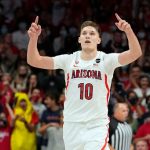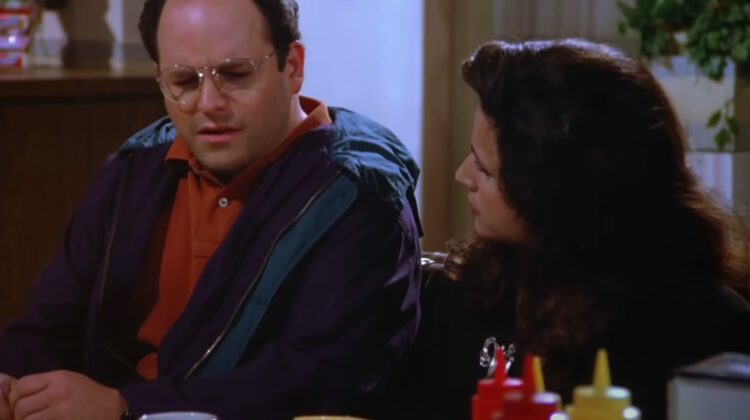Pac-12 commissioner George Kliavkoff has experienced an astounding number of bad weeks since taking charge of the conference in the summer of 2021. This was one of his worst.
It began last Friday at the Pac-12’s preseason showcase in Las Vegas, where he did not unveil a new media rights deal and instead uttered a few comments that were questionable in the moment and looked clueless few days later.
His problems grew exponentially Thursday, when Colorado announced its departure for the Big 12, becoming the third school to exit under Kliavkoff’s watch.
Granted, Kliavkoff inherited a difficult situation because of massive strategic mistakes made by his predecessor, Larry Scott. But Colorado’s defection was a clear vote of no confidence in the current leadership.
The next month likely will determine whether the 108-year-old conference survives past the coming college sports season.
Nobody asked, but the Hotline has a few strategic suggestions.
1. Get a win
Kliavkoff has fewer victories in the past year than Colorado’s football program. He needs to provide stakeholders inside and outside the conference with reason to believe he’s up to the challenge.
The university president and athletic directors met with Kliavkoff (remotely) on Thursday night to plot strategy in the wake of Colorado’s exit. Soon after, the Pac-12 released a statement that expressed unity among the nine remaining schools:
“We remain committed to our shared values and to continuing to invest in our student-athletes. Today’s decision by the University of Colorado has done nothing to disrupt that commitment.”
It also vaguely addressed the next steps:
“We are focused on concluding our media rights deal and securing our continued success and growth. Immediately following the conclusion of our media rights deal, we will embrace expansion opportunities and bring new fans, markets, excitement and value to the Pac-12.”
Two reactions:
— This latest show of unity, like its predecessors, is meaningless until the presidents sign a grant-of-rights agreement that binds their media revenue to the conference. And that won’t happen until Kliavkoff presents an acceptable media deal.
— Time is precious. Presidential patience is eroding, and the football season is approaching. A media rights deal “must be done before kickoff,” one athletic director told us.
If Kliavkoff cannot produce an acceptable deal in the next week or two, he should turn to the next best thing: expansion.
The Pac-12 long ago performed due diligence on several schools, including San Diego State and SMU, and needs a 10th team in time for the 2024 football season in order to avoid a costly reconfiguration of the conference schedule. (It cannot stick to the nine-game rotation if there are only nine teams.)
Why not move on the membership issue now, before the media deal?
“The Pac-12 should look to expand ASAP to stay relevant and refresh the media rights conversations with networks,” said a source in the sports media industry, who added that a quick strike would “show remaining members that the Pac-12 is focused on growth.”
2. Move on SMU
From here, the Mustangs are the obvious candidate for the 10th slot and, in several regards, would constitute an upgrade over Colorado.
They bring exposure to a far larger media market (Dallas) and are located in one of the most talent-rich regions in the country. Their academic profile easily clears the Pac-12’s bar. They would give the conference a presence in the Central Time Zone (for kickoffs) and a foothold in Texas for future undergraduate applicants — an important component for university presidents.
And unlike San Diego State, the Mustangs have a cleaner, cheaper path into the Pac-12 next summer.
The Aztecs would owe the Mountain West about $34 million and, by their own admission, aren’t equipped to handle the amount.
The Mustangs would owe the American Athletic Conference $18 million — if recent history is an accurate guide — and are fully capable of covering the cost.
3. Be bold
The Pac-12 presidents have long prided themselves on knowing “where the puck is going,” in the words of former Oregon boss Michael Schill, who hired Kliavkoff. But for all the talk, the board of directors sure doesn’t think big.
The presidents could have changed commissioners in the late 2010s and avoided many of the current problems.
They could have partnered with the Big 12 on any number of occasions in the past. (We suggested it in 2019.)
They could have added Houston (and other teams from the Big 12 footprint) in the summer of 2021.
And they could have urged Kliavkoff to move quickly on expansion and the media rights deal last fall.
Instead, they did none of those things.
This feels like a good time to follow the advice of noted Seinfeld sage George Costanza: “I used to sit here and do nothing and regret it for the rest of the day. So now, I will do the opposite, and I will do something.”
The presidents need to disregard their instincts. They need to act with bold strokes and a broad view.
How bold? Here’s one option to seriously consider: Gonzaga.
The Zags are there for the taking and would instantly elevate the level of Pac-12 basketball, give Kliavkoff a win and show stakeholders that the conference cares about brands.
The Zags don’t play football and thus wouldn’t require a full revenue share. (The financial calculation changes without a 10th full-share member, Colorado, involved.) Their TV ratings trump those of the existing Pac-12 schools, and they would set up the conference to take advantage of future increases in March Madness revenue.
In football, an even number of teams is vital for scheduling, so adding either SMU or San Diego State makes sense.
But basketball has no such numeric encumbrance. The Zags could slide in as the 11th team.
The Pac-12 doesn’t have many viable options for adding brand-name schools in either major sport. Why not consider grabbing one of the few that’s readily available?
“If every instinct you have is wrong,” Jerry told George that fateful day in the coffee shop, “then the opposite would have to be right.”
*** Send suggestions, comments and tips (confidentiality guaranteed) to pac12hotline@bayareanewsgroup.com or call 408-920-5716
*** Follow me on Twitter: @WilnerHotline
*** Pac-12 Hotline is not endorsed or sponsored by the Pac-12 Conference, and the views expressed herein do not necessarily reflect the views of the Conference.
Attachments area
Related posts:
 Wilner Hotline: Upcoming Pac-12 Head Football Coaching Vacancies
Wilner Hotline: Upcoming Pac-12 Head Football Coaching Vacancies 
Oregon wide receiver Johnny Johnson III (3) Eugene, Ore. (AP Photo/Andy Nelson)
Wilner Hotline – Oregon Ducks Hire First-Time Head Coach Pac-12 Hoops Power Ratings – Arizona, UCLA, USC at the Top
Pac-12 Hoops Power Ratings – Arizona, UCLA, USC at the Top  Wilner Hotline mailbag: Renewing with ESPN and Fox(?), the Four Corners factor, selection windows and more
Wilner Hotline mailbag: Renewing with ESPN and Fox(?), the Four Corners factor, selection windows and more
